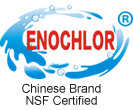27
2025
-
07
Maximizing Efficiency with High-Quality OEM Calcium Hypochlorite: A Comprehensive Guide
Maximizing Efficiency with High-Quality OEM Calcium Hypochlorite Table of Contents Introduction to Calcium Hypochlorite What is Calcium Hypochlorite? Benefits of Using High-Quality OEM Calcium Hypochlorite Applications of Calcium Hypochlorite in Various Industries Best Practices for Handling Calcium Hypochlorite Environmental Considerations and Safety Measures Choosing
Maximizing Efficiency with High-Quality OEM Calcium Hypochlorite
Table of Contents
- Introduction to Calcium Hypochlorite
- What is Calcium Hypochlorite?
- Benefits of Using High-Quality OEM Calcium Hypochlorite
- Applications of Calcium Hypochlorite in Various Industries
- Best Practices for Handling Calcium Hypochlorite
- Environmental Considerations and Safety Measures
- Choosing a Reliable OEM Supplier for Calcium Hypochlorite
- Conclusion
- FAQs about Calcium Hypochlorite
Introduction to Calcium Hypochlorite
Calcium hypochlorite, often referred to as bleaching powder, is a chemical compound extensively used for its powerful disinfectant properties. As a strong oxidizing agent, it serves various applications across industries, primarily in water treatment and sanitation. The demand for high-quality OEM (Original Equipment Manufacturer) calcium hypochlorite has surged due to its efficiency and effectiveness in ensuring clean and safe environments.
What is Calcium Hypochlorite?
Calcium hypochlorite (Ca(OCl)₂) is a white, granular compound produced by the reaction of chlorine gas with calcium hydroxide. It is highly soluble in water and releases chlorine upon dissolution, making it an ideal choice for disinfection and sanitation purposes. Typically, it comes in two forms: powder and tablets, each serving different operational needs.
The Chemical Composition of Calcium Hypochlorite
Calcium hypochlorite consists of calcium, chlorine, and oxygen, which contribute to its strong oxidizing abilities. The presence of active chlorine in its chemical structure allows it to effectively kill bacteria, viruses, and other harmful pathogens present in water and surfaces.
Physical and Chemical Properties
- **Appearance**: White powder or granules
- **Solubility**: Highly soluble in water
- **Density**: Approximately 2.35 g/cm³
- **pH**: Alkaline when dissolved in water
- **Stability**: Stable under normal conditions but can decompose under heating or in contact with organic materials
Benefits of Using High-Quality OEM Calcium Hypochlorite
Utilizing high-quality OEM calcium hypochlorite offers numerous advantages that enhance operational efficiency.
1. Superior Disinfection Properties
High-quality calcium hypochlorite contains a higher percentage of available chlorine, making it a more effective disinfectant. This translates to fewer doses needed for water treatment, saving both time and resources.
2. Cost-Effectiveness
While the initial investment in high-quality OEM products may be higher, the long-term savings achieved through efficient dosing and reduced maintenance costs often outweighs the upfront expense.
3. Versatility in Applications
Calcium hypochlorite is adaptable to various industries such as municipal water treatment, swimming pool sanitation, food processing, and wastewater management, making it a valuable asset in any operational context.
4. Easy Storage and Handling
When stored correctly, calcium hypochlorite remains stable, allowing for easy inventory management. Its solid form reduces the risks associated with handling liquid chlorine.
5. Enhanced Shelf Life
High-quality OEM calcium hypochlorite typically has a longer shelf life compared to inferior products, ensuring that users have a reliable disinfectant available when needed.
Applications of Calcium Hypochlorite in Various Industries
The applications of calcium hypochlorite are diverse and extend to multiple sectors, each benefiting from its unique properties.
Water Treatment and Disinfection
One of the primary uses of calcium hypochlorite is in municipal water treatment facilities. It effectively eliminates harmful microorganisms, ensuring safe drinking water.
Swimming Pool Sanitization
In recreational water environments, calcium hypochlorite is a preferred choice for maintaining clean and safe swimming pool water. Its ability to quickly dissolve and release chlorine makes it ideal for routine sanitation.
Food Processing and Preservation
Calcium hypochlorite is frequently utilized in the food industry for disinfecting surfaces and equipment, providing a safe environment for food preparation and processing.
Wastewater Treatment
In wastewater treatment plants, calcium hypochlorite assists in breaking down organic matter, enabling compliance with environmental regulations and standards.
Industrial Cleaning and Sanitization
Manufacturing and industrial facilities use calcium hypochlorite for cleaning purposes, effectively disinfecting surfaces and equipment to meet health and safety standards.
Best Practices for Handling Calcium Hypochlorite
To maximize the effectiveness of calcium hypochlorite and ensure safety, certain best practices should be followed.
1. Proper Storage Conditions
Store calcium hypochlorite in a cool, dry place, away from direct sunlight and moisture. Ensure that it is kept in a well-ventilated area to prevent the buildup of harmful gases.
2. Use Appropriate Personal Protective Equipment (PPE)
When handling calcium hypochlorite, it is crucial to wear appropriate PPE, including gloves, goggles, and masks to protect against inhalation and skin contact.
3. Avoid Mixing with Other Chemicals
Never mix calcium hypochlorite with other chemicals, especially organic materials or acids, as this can lead to violent reactions and the release of toxic gases.
4. Regular Training and Safety Drills
Regular training sessions for employees handling calcium hypochlorite can significantly reduce the risk of accidents and ensure a thorough understanding of safety protocols.
Environmental Considerations and Safety Measures
While calcium hypochlorite is a powerful disinfectant, it is essential to consider its environmental impact and implement safety measures.
1. Responsible Disposal Practices
Used or expired calcium hypochlorite should be disposed of according to local regulations to minimize environmental contamination.
2. Monitoring Water Quality
Routine monitoring of treated water quality can help ensure that residual chlorine levels remain within safe limits, protecting aquatic life and ecosystems.
3. Implementing Safety Protocols
Establishing and adhering to safety protocols can significantly reduce the risks associated with handling calcium hypochlorite, ensuring the safety of employees and the environment.
Choosing a Reliable OEM Supplier for Calcium Hypochlorite
Selecting the right OEM supplier is crucial for obtaining high-quality calcium hypochlorite. Here are some key factors to consider:
1. Quality Assurance and Certifications
Seek suppliers that adhere to industry standards and possess relevant certifications. These indicators reflect a commitment to quality and safety.
2. Proven Track Record
Research the supplier’s history and reputation in the industry. Reliable suppliers often have positive customer testimonials and case studies showcasing their products’ effectiveness.
3. Transparent Pricing and Policies
Ensure that the supplier provides clear pricing structures, along with details on shipping, handling, and return policies. Transparency fosters trust and confidence in the supplier’s operations.
4. Customer Support
A responsive customer support team can assist with inquiries and provide essential guidance on product usage, ensuring a positive purchasing experience.
Conclusion
High-quality OEM calcium hypochlorite is an indispensable chemical for various industries due to its exceptional disinfectant properties and versatility. By understanding its benefits, applications, and best practices for handling, organizations can maximize efficiency and ensure safe operational environments. Selecting a reliable supplier further enhances the overall effectiveness and safety of calcium hypochlorite usage. As industries continue to prioritize cleanliness and safety, the role of high-quality calcium hypochlorite remains critical in achieving these objectives.
FAQs about Calcium Hypochlorite
1. What industries commonly use calcium hypochlorite?
Calcium hypochlorite is widely used in water treatment, swimming pool sanitation, food processing, wastewater management, and industrial cleaning.
2. How should I store calcium hypochlorite?
Store calcium hypochlorite in a cool, dry place, away from sunlight and moisture, and in a well-ventilated area.
3. Can calcium hypochlorite be mixed with other chemicals?
No, calcium hypochlorite should not be mixed with other chemicals, especially acids or organic materials, to prevent dangerous reactions.
4. How do I determine the right dosage for water treatment?
Dosage depends on the specific application and water quality. It is best to consult manufacturer guidelines or a water treatment professional for accurate dosing.
5. What safety measures should be taken while handling calcium hypochlorite?
Wear appropriate PPE, including gloves and goggles, store it safely, and follow proper handling procedures to reduce risks.
Previous
2023-04-23







